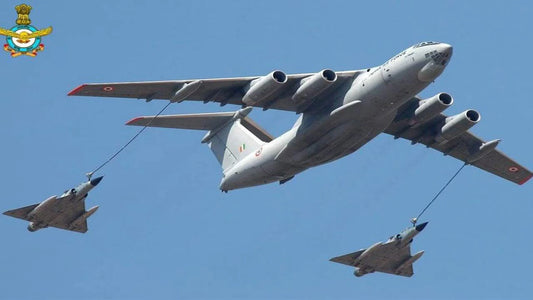Pakistani ICBM Development Targeting US Raises Concerns, Say American Intelligence Reports

U.S. intelligence agencies have identified Pakistan's efforts to develop an intercontinental ballistic missile (ICBM) capable of reaching the continental United States, marking a potential major change in the global nuclear landscape. Traditionally, Pakistan's missile program has focused on countering regional threats, particularly from India.
According to a report in Foreign Affairs, this shift toward long-range missile capabilities accelerated following India's Operation Sindoor in May 2025. This military operation involved precise strikes on terrorist targets across the border. Analysts in the United States suggest that Pakistan may be aiming to extend its deterrence capabilities beyond the Indian subcontinent, possibly to prevent U.S. involvement in regional disputes or actions against its nuclear resources.
Intercontinental ballistic missiles are long-range weapons with a minimum range of 5,500 kilometers, primarily designed to carry nuclear warheads. Many ICBMs feature multiple independently targetable reentry vehicles (MIRVs), allowing a single missile to hit various targets at once. Currently, the United States, Russia, China, France, the United Kingdom, India, Israel, and North Korea have operational ICBMs.
If Pakistan's development is confirmed, joining this exclusive group would signify a strategic shift. It would become the first U.S. ally or former ally with missile capabilities posing a direct threat to the U.S. mainland. This could lead Washington to reconsider its diplomatic and security policies with Islamabad.
The U.S. intelligence community is particularly worried about the broader consequences. "No nation possessing ICBMs has ever been treated as an ally by the U.S.," a senior defense analyst commented, emphasizing the potential change this could bring to nuclear threat perceptions and diplomatic responses.
While Pakistan has not officially confirmed such a program, previous missile tests, such as those from the Shaheen and Ababeel series, have indicated Islamabad's growing ambitions in missile technology, including multi-warhead capabilities.
The timing of this intelligence revelation is significant as the United States manages its strategic interests in South Asia amidst escalating tensions with China and Russia. Analysts caution that a Pakistani ICBM, especially if developed with adversarial nations, could add complexity to global nuclear stability.
Though the status of Pakistan's ICBM program remains unverified, experts contend that even the possibility of its development could alter regional and global security dynamics, potentially prompting the U.S. to adjust its engagement strategies in South Asia.



















